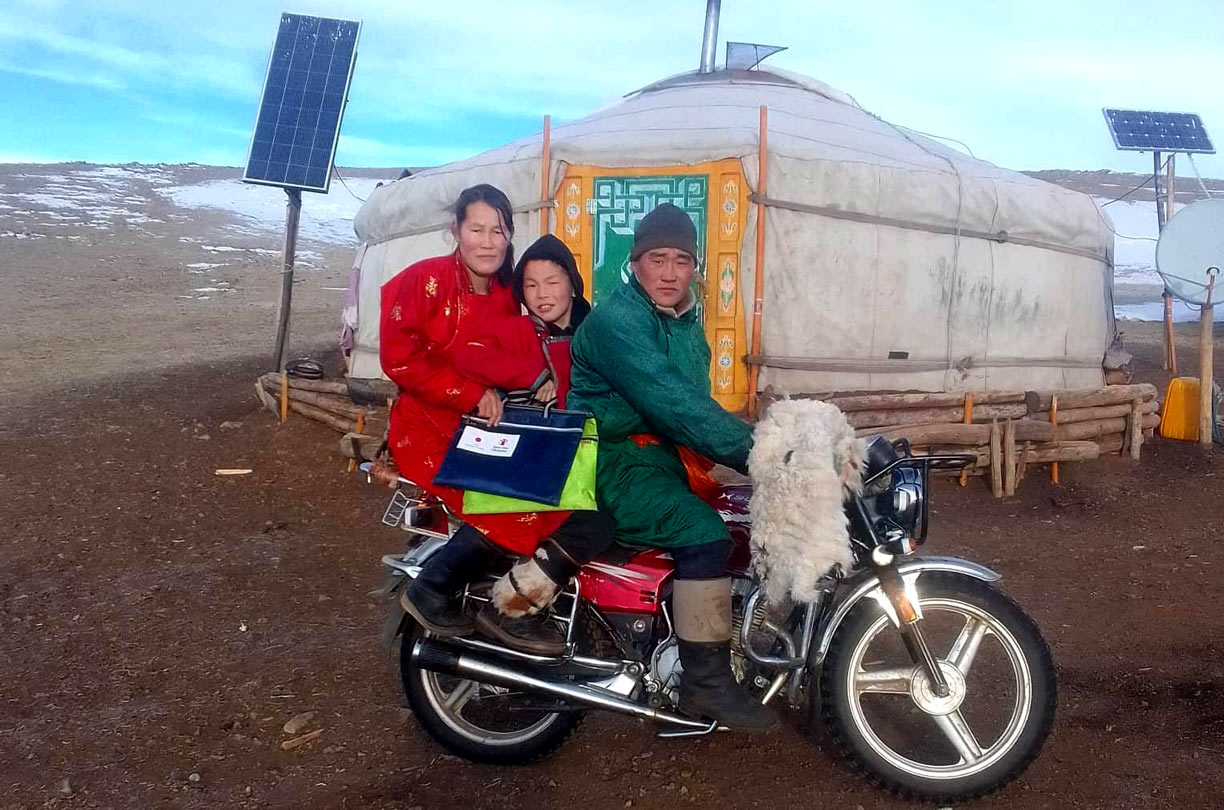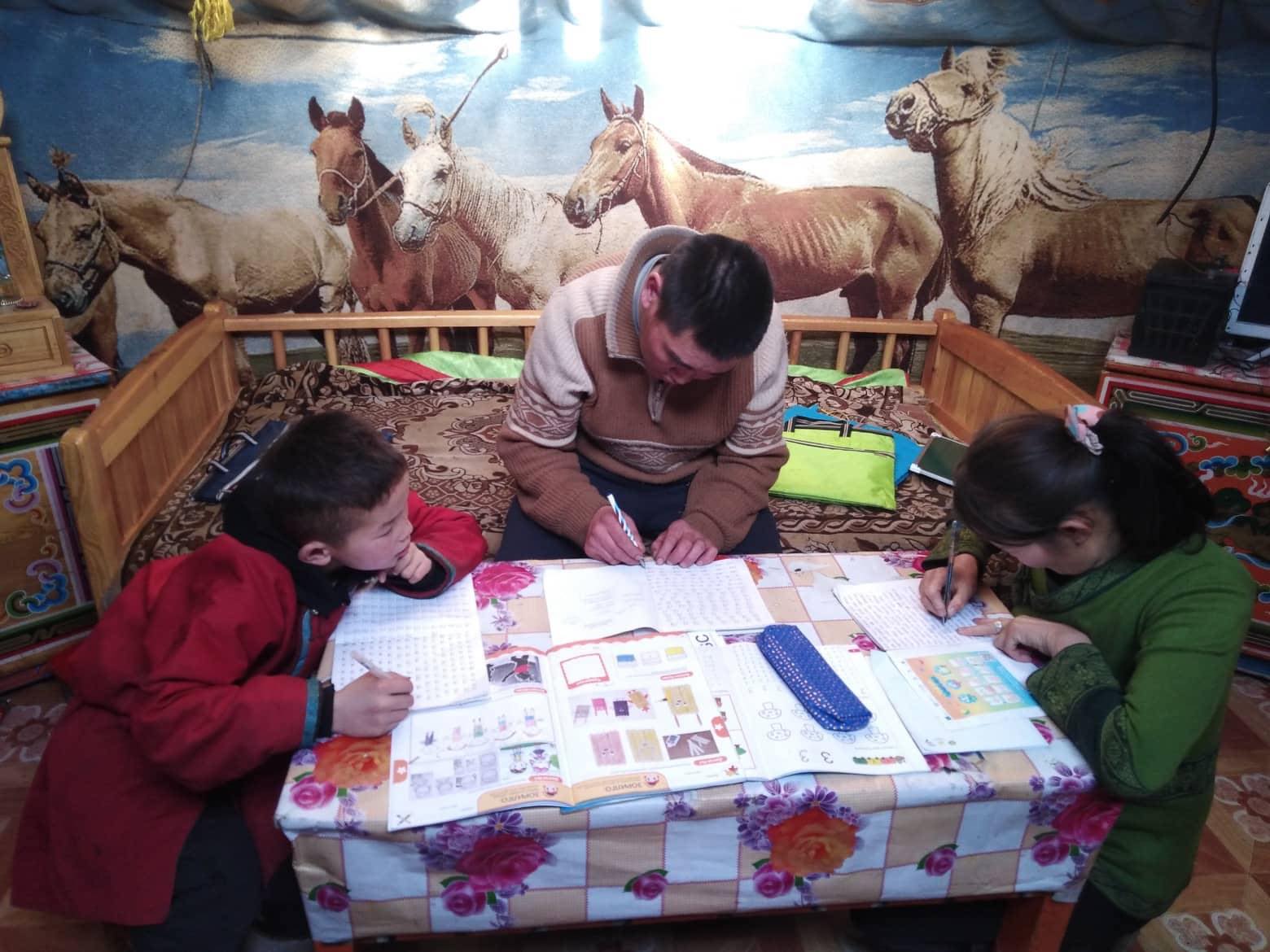Success stories of project “Introducing a Systematic Support Model for Illiterate Herder Parents to Improve the Learning and Wellbeing of Children with Disabilities” (2022-2023)
Save the Children has been implementing a project “Introducing a Systematic Support Model for Illiterate Herder Parents to Improve the Learning and Wellbeing of Children with Disabilities” (2022-2023) in Bat-Ulzii and Zuunbayan-Ulaan soums of Uvurkhangai aimag and Bulgan and Darvi soums of Khovd aimag, Mongolia. This project is aimed at assessing the literacy levels of herder parents and caregivers of children with disabilities in rural communities, identifying struggles they may face in supporting their children’s education and well-being, increasing knowledge, and improving their skills by developing a need-based educational program. The following stories are to demonstrate how the beneficiaries of the project in the target locations have succeeded in their respective goals since the project started.
The success story of D. Sodnomtseren and A. Munksaikhan from Bat-ulzii soum, Uvurkhangai aimag
A. Sodnomtseren, project beneficiary: My son Bat-Erdene is 7 years old and was diagnosed with joint spasms. He has difficulty going to school, gets tired easily, and faces problems interacting with other children. In the past, I had never thought about sending my child to kindergarten or school as I was worried he would be bullied or whether teachers would not accept him. We ourselves could not get proper information due to a lack of literacy skills.
However, by being involved in this project, we got information and sent my son to kindergarten. Now he is in a senior group in kindergarten. We were welcomed in a different environment than expected. The kindergarten teachers are very friendly and take great care of my son, and I am grateful that the children in the class are also very nice to my son. Sometimes he takes a break because he is too tired if he goes to the kindergarten on a regular basis. When my son takes a break, the teachers pay much attention to him and ask about his studies. I am very happy that other people treat my son so well. In the framework of this project, I attended many excellent classes. What we think has changed a lot. Now we often say that let’s spend money on this or let’s buy something like that at home. There has been a big change in what we do.
Our family members read and write together and study together, so the books and textbooks provided by the project fully meet the needs of our family. I started to study with my children and talk to them more often. When we study ourselves, we even pay attention to our children’s studies. During the New Year, Grandfather Frost came to our house and gave gifts to our children. Not only the children but also we were very happy. My wife uses cow hair to make ger ropes. My project teacher made us understand that it is possible to make a living by making little things. The teacher also helps us to find a solution for any problem by telling us who we will turn to or how to use this opportunity and so on. Then the teacher gave me the idea to participate in fairs that are organized during the Lunar New Year. Also, my wife was invited to attend the Mongolian shoemaking training by my teacher at the Lifelong Education unit. We are grateful to those who help us with such a wonderful project.
Facilitator G. Dulamdorj: All the people participating in the project are very active and friendly. During the project, we are aiming to get learner-families involved in life skills training step by step, so that they will have a family business. Also, it is planned to include one family in Mongolian shoemaking training and two families in eco soap and candle-making training. For Munksaikhan’s family, our goal is to help them with their skills to make cow hair ropes and make them known to the public and connect with potential customers.
The family of T.Demberelsuren, the herder in Zuunbayan-ulaan soum
T. Demberelsuren lives with his wife M. Bayartsetseg, 2 sons, and a daughter. Son D. Purevjav is 10 years old and has a learning disability.
Learner T.Demberelsuren: In the past, my wife and I faced various difficulties with doing calculations, reading, and signing documents while receiving services in shops, banks, malls, and hospitals when I went to the center of soum. As we are illiterate, we often face problems with calculations, resulting in financial loss. There are a number of cases where we end up paying more, causing us not to buy what we need, as we do not have enough money. There are also cases where we go home empty-handed. We need to read in order to take our son to see a doctor and get medical advice. Due to a lack of literacy, we could not help our son to get medical assistance.
I used to think that learning to read was too late for us and it was never possible. There was a great need to learn, but I did not know who to turn to. As we are adults and live in a remote area, we assumed that no one would teach us how to read. Although I really wanted to learn how to read, we gave up on this dream due to embarrassment and worry. Fortunately, there is a project that helps people like us who have similar difficulties. Our local government helped us to be involved in this project, and we found a teacher. Our teacher sometimes comes to teach at home, and sometimes we go to the soum center ourselves to attend classes.
Now, I can read, know to write my signature and perform basic math calculations. In the past, I used to think that I would not learn, as I am an adult now and already lost my opportunity to learn when I was a child. We were also given school supplies.





